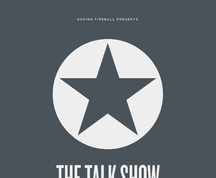Advertisers are increasingly distancing themselves from X, the social media platform formerly known as Twitter, following recent incendiary remarks by owner Elon Musk. According to a New York Times report, Musk’s confrontational stance and use of expletives against brands have led to a significant number of marketing agencies and their clients firmly deciding against advertising on X. This shift marks a growing trend of advertisers seeking to avoid reputational risks associated with the platform.
Elon Musk has been critical of advertisers since acquiring Twitter, even threatening a “thermonuclear name & shame” campaign against brands pausing their spending over content moderation concerns. His recent comments at the DealBook Summit in New York, where he apologized for an antisemitic post but accused advertisers of trying to “blackmail” him, have only exacerbated the situation. Musk’s explicit language and dismissive attitude toward advertisers, including targeting Disney CEO Bob Iger, have further alienated brands.
The backlash from advertisers poses a significant threat to X’s financial stability. Over 200 advertisers had already paused their spending on the platform, and Musk’s recent remarks are likely to turn these temporary pauses into permanent freezes. This could result in a loss of up to $75 million for X this quarter. High-profile brands like Apple, Disney, and IBM have halted their campaigns, while others like the NFL and The New York Times’s The Athletic continue to advertise.
Industry response
Marketing experts and consultants are advising clients to not only stop spending on X but also to reconsider posting on the platform. The consensus is that the reputational risk outweighs any advertising value X might offer. Linda Yaccarino, X’s chief executive, attempted to mitigate the damage by focusing on Musk’s apology and appealing for advertisers to return. However, her efforts seem to be in vain, as the industry perceives Musk as an unpredictable and unreliable partner.
The situation presents a significant challenge for X, especially as the last quarter of the year is typically a lucrative period for the platform. Musk’s rejection of advertiser concerns and his refusal to “pander” to them has raised doubts about his ability to stabilize X’s revenue. The ongoing boycott by advertisers, if prolonged, could potentially lead to bankruptcy for X, with Musk suggesting that the public would blame the brands rather than his leadership.
The recent developments at X highlight the delicate balance between free speech and commercial interests in social media. As advertisers continue to pull away, the future of X remains uncertain, with its revenue and reputation at stake.







